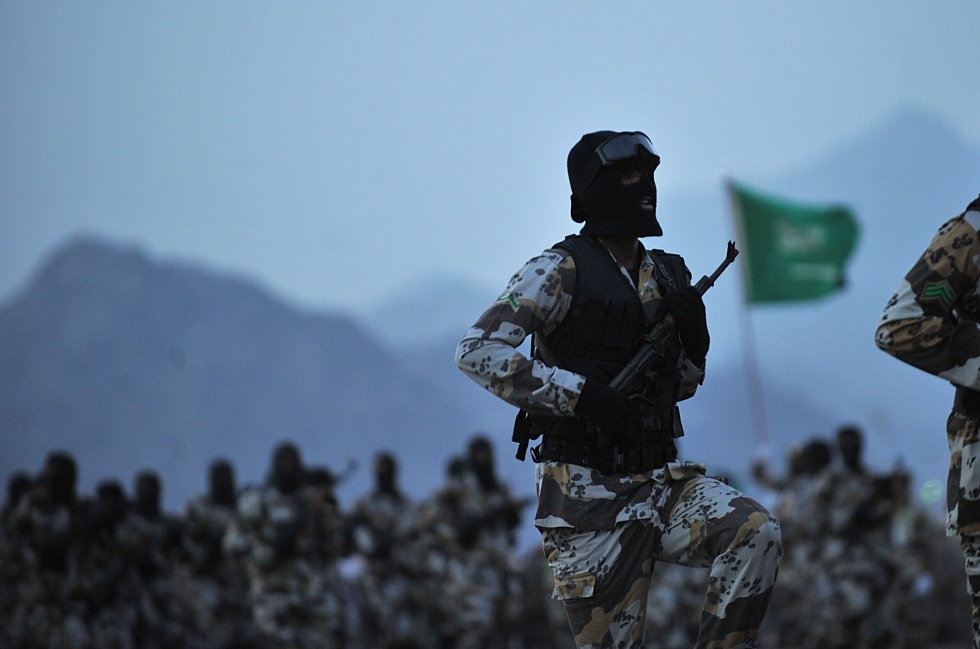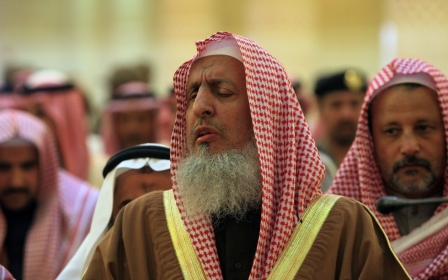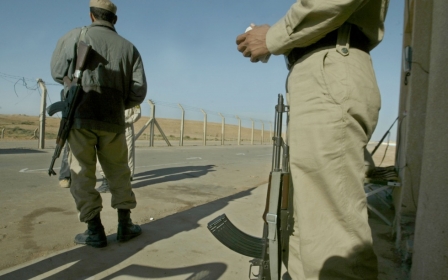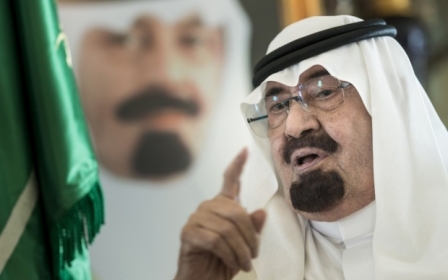Two Saudi border guards killed in Iraqi suicide bombing

A suicide bomb attack on Monday killed two Saudi border guards in the Arar region bordering Saudi Arabia, following a firefight between suspected IS militants and the guards, according to Saudi Arabia's interior ministry.
"The border guards dealt with the situation accordingly and surrounded the attackers, killing one of them in the process. One of the terrorists, however, detonated an explosive belt he was wearing, killing himself and two border guards and injuring a third policeman," Major-General Mansour al-Turki told the state-run SPA news agency.
"The incident is still being investigated, and another statement would be released later to clarify all the details," he added.
The local Al-Watan newspaper named one of the victims as General Oudah al-Belawi, commander of the border guards in the northern zone.
Saudi Arabia is one of the members of the U.S.-led international coalition that had carried more than 1,200 air strikes against IS in Iraq and Syria since August, according to a joint task force leading the operations.
The alliance also includes France, Germany, United Arab Emirates, Jordan and others.
The oil-rich Gulf State has publicly stated its efforts to stem the rising tide of support for IS among Saudi citizens, including mobilising the grand mufti to say IS is “enemy number one of Islam”.
Thousands of Saudis have gone to fight in Syria since war erupted there in 2011 and in February this year authorities introduced a decree stipulating long prison sentences for anyone who leaves to take part in a foreign conflict.
While reports have suggested the number of Saudis leaving for Syria has slowed since the decree, they continue to play a prominent role in IS violence. Over a 45-day period between September and October 14 of 31 IS suicide attacks in Iraq were carried out by Saudi citizens.
Within the kingdom there has been a groundswell of support for IS, with a surge in pro-IS activity on Twitter detailed by Vocative during the summer. 95 percent of mentions on the hashtag #ABillionMuslimsForTheVictoryOfTheIsis came from Saudi Arabia, according to the news site.
Although IS are not thought to be officially operating in Saudi Arabia at the moment, the killing of several Shiite worshippers in the Eastern Province earlier this month led to activists saying the attackers were likely motivated by the group’s ideology.
- See more at: http://www.middleeasteye.net/news/saudi-arabia-expands-its-border-zone-iraq-hold-back-infiltrators-and-smugglers-207310047#sthash.8NbQggyt.dpufSaudi Arabia to reopen Iraq embassy
Saudi Arabia announced on Saturday it was sending a delegation to Iraq ahead of opening an embassy in Baghdad where its last mission closed nearly 25 years ago.
A foreign ministry statement said the delegation would "take the necessary decisions to choose and equip buildings" for an embassy in Baghdad and a consulate in Arbil, capital of the autonomous Kurdistan region in the north.
Diplomatic relations between Saudi Arabia and Iraq were severed in 1990 but restored in 2004 after the fall of Saddam Hussein's regime.
However, Riyadh had not yet reopened its embassy in Baghdad.
This mission to do so was decided after contacts between the neighbouring states, the official SPA news agency cited a Saudi foreign ministry spokesman as saying.
Last November, Iraqi President Fuad Masum visited Saudi Arabia for the first such high-level trip in years in a sign of warming relations after years of strain between the two countries.
Within the kingdom there has been a groundswell of support for IS, with a surge in pro-IS activity on Twitter detailed by Vocative during the summer. 95 percent of mentions on the hashtag #ABillionMuslimsForTheVictoryOfTheIsis came from Saudi Arabia, according to the news site.
Although IS are not thought to be officially operating in Saudi Arabia at the moment, violence Shiite worshippers in the Eastern Province in 2014 led to activists saying the attackers were likely motivated by the group’s ideology.
Middle East Eye propose une couverture et une analyse indépendantes et incomparables du Moyen-Orient, de l’Afrique du Nord et d’autres régions du monde. Pour en savoir plus sur la reprise de ce contenu et les frais qui s’appliquent, veuillez remplir ce formulaire [en anglais]. Pour en savoir plus sur MEE, cliquez ici [en anglais].




